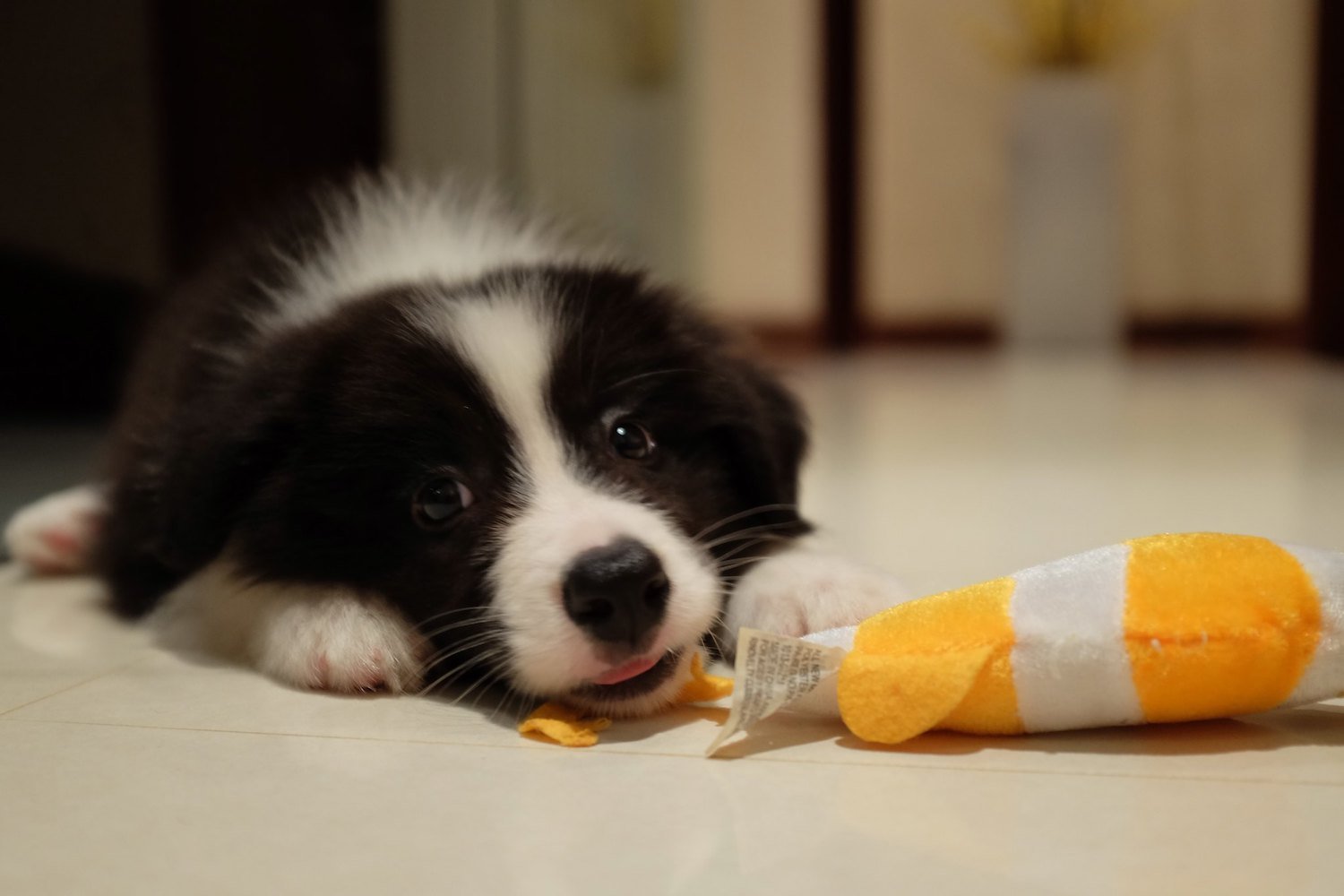
Your dog may not only really love its favorite chew toy. He or she may also be able to remember its name, even without getting a chance to pounce on it for two years.
A new study, although highly limited, shows that a dog’s ability to retain cognitive labels for objects is greater than we give them credit for. It could actually put dogs on the same level of a small child whose verbal abilities have begun to develop, the scientists say.
A trio of animal behaviorists at Hungary’s Eötvös Loránd University, led by Shany Dror, conducted the study, published in Biology Letters. In December, 2020, a handful of furry boys and girls were given 12 toys each, and were taught their names. The quartet of dogs, named Max, Rico, Squall, Whisky, and Gaia, had owners whose available time to play with their dogs varied. The former three had busy owners, who could only help them play with their toys for half an hour a day. Gaia had a ball, getting over five hours of play time a day, while Whisky’s play time was somewhere in between.
The dogs were tested on whether they could remember the toys’ names a month later, then again a month after that, and finally two years later. After that time, the dogs were given some chances to sniff the objects, to ensure they didn’t get overexcited, before their owners instructed them with a verbal command to get a specific toy, which they called by name.
If the dogs retrieved the right toy, they were praised for being the good boys and girls they almost certainly were.
The dogs showed a solid ability to retain the name of the toys after a month or two, collectively getting the correct toy 70% of the time and 55% of the time, respectively, on those tests. But the study showed that, although their ability to recall the toys’ names did degrade over a period of years, it didn’t entirely go away. When the dogs were retested after that time, they retrieved the correct toy 44% of the time. That may sound like a failing grade, but the study’s organizers calculated that, if they had relied only on luck, they would have gotten the right answer only 20.4% of the time.
Some of the dogs were significantly better than others, and the amount of time spent playing didn’t appear to be a factor. Rico and Gaia led the pack, with a 60% and 54% success rate, although it should be noted that Rico’s owner lost most of the toys during the two years, so those results may be skewed. Of the group, though, only Squall’s score was roughly on par with luck. Every other dog scored at least 20% higher than pure chance.
As you’re surely wondering, yes the experiment has video, and yes, it’s adorable.
As the researchers pointed out, the large number of toys involved presented a significant challenge, and the dogs likely would have scored even better if that number had been reduced. It’s important to note that the findings may not apply to all dogs. The study’s sample size was incredibly small, with just five adults being observed. It’s possible the behavior is breed-specific, too, as all the pups were border collies.
Domestic canines were chosen for the study due to their similarities to developing children, in that they are constantly exposed to human language, and because little is known about domesticated dogs’ long-term memory (although the research on that is growing). In the study, the behavioral scientists said the dogs’ ability to retain cognitive labels rivals that of toddlers. Dogs don’t have the language abilities of humans, but the study indicates that’s not a hindrance to being able to attach a label to an object, and remember those labels for extended periods of time. The research could open up new avenues of exploration into how our own thinking processes evolved over time, and continue to function to this day.
You could say the results are not for the dogs, but are actually pretty fetching.
Trending Products




